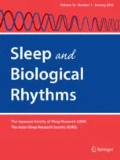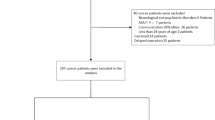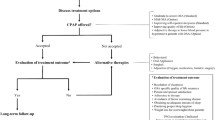Abstract
To evaluate changes in the sleep patterns of patients undergoing general anesthesia for maxillofacial plastic surgery. A total of 200 consecutive craniofacial plastic surgery patients were enrolled in this study. Sixteen patients who did not stay in the craniofacial ward on the night before surgery were excluded, providing a final total of 184 patients. PSQI was used to evaluate sleep quality 1 month before surgery (baseline) and on the night before surgery. According to the baseline sleep quality score, patients were assigned to the sleep disorder group (SD group, n = 51, 27.7%; PSQI score > 5) or non-sleep disorder group (NSD group, n = 133, 72.3%; PSQI score ≤ 5). The PSQI score on the night before the operation was compared with the baseline score. Amongst the total sample size, the incidence of disturbed sleep on the night before surgery was significantly higher than baseline (PSQI score > 5: 89,48.4% vs.51,27.7%, respectively, P = 0.037). In the NSD group, the PSQI score the night before surgery was significantly increased compared with the baseline score (5.6 ± 3.2 vs. 2.4 ± 1.4, respectively, P < 0.0001). The PSQI score on the night before surgery was significantly lower in the NSD group than in the SD group (5.6 ± 3.2 vs. 7.4 ± 4.1, respectively, P = 0.009). On the night before surgery, the time to fall asleep was significantly prolonged. The sleep duration, the total time in bed, and the sleep efficiency were significantly reduced compared with the baseline in the NSD group. On the night before surgery, the sleep duration and the total time in bed were also reduced in the SD group, however, with no significant change in PSQI score. Patients without sleep disorders were more likely to have sleep disorders before surgery. So, this study concluded that a goal of perioperative management should be to actively address the sleep problems before surgery.


Similar content being viewed by others
References
Dinges DF, Pack F, Williams K, Gillen KA, Powell JW, Ott GE, Aptowicz C, Pack AI. Cumulative sleepiness, mood disturbance, and psychomotor vigilance performance decrements during a week of sleep restricted to 4–5 hours per night. Sleep. 1997;20(4):267–77.
Killgore WD, Balkin TJ, Wesensten NJ. Impaired decision making following 49 h of sleep deprivation. J Sleep Res. 2006;15(1):7–13.
Yin J, Jin X, Shan Z, Li S, Huang H, Li P, Peng X, Peng Z, Yu K, Bao W, Yang W, Chen X, Liu L. Relationship of sleep duration with all-cause mortality and cardiovascular events: a systematic review and dose response meta-analysis of prospective cohort studies. J Am Heart Assoc. 2007;6(9):e005947.
Shi L, Chen SJ, Ma MY, Bao YP, Han Y, Wang YM, Shi J, Vitiello MV, Lu L. Sleep disturbances increase the risk of dementia: a systematic review and meta-analysis. Sleep Med Rev. 2018;40:4–16.
Fatima Y, Doi SA, Mamun AA. Sleep quality and obesity in young subjects: a meta-analysis. Obes Rev. 2016;17(11):1154–66.
Cappuccio FP, Taggart FM, Kandala NB, Currie A, Peile E, Stranges S, Miller MA. Meta-analysis of short sleep duration and obesity in children and adults. Sleep. 2008;31(5):619–26.
Gangwisch JE, Heymsfield SB, Boden-Albala B, Buijs RM, Kreier F, Pickering TG, Rundle AG, Zammit GK, Malaspina D. Sleep duration as a risk factor for diabetes incidence in a large US sample. Sleep. 2007;30(12):1667–73.
Zhai L, Zhang H, Zhang D. Sleep duration and depression among adults: a meta-analysis of prospective studies. Depress Anxiety. 2015;32(9):664–70.
Wright CE, Bovbjerg DH, Montgomery GH, Weltz C, Goldfarb A, Pace B, Silverstein JH. Disrupted sleep the night before breast surgery is associated with increased postoperative pain. Pain Symptom Manage. 2009;37(3):352–62.
Buysse DJ, Reynolds CF 3rd, Monk TH, Berman SR, Kupfer DJ. The Pittsburgh sleep quality index: A new instrument for psychiatric practice and research. Psychiatry Res. 1989;28(2):193–213.
Dolan R, Huh J, Tiwari N, Sproat T, Camilleri-Brennan J. A prospective analysis of sleep deprivation and disturbance in surgical patients. Ann Med Surg. 2016;6:1–5.
Cilingir D, Hintistan S, Ergene O. Factors affecting the sleep status of surgical and medical patients at a University Hospital of Turkey. J Pak Med Assoc. 2016;66(12):1535–40.
Mohammad H, Mohammad AI, Saba A. Sleeping pattern before thoracic surgery: A comparison of baseline and night before surgery. Heliyon. 2019;5(3):e01318.
Ida M, Onodera H, Yamauchi M, Kawaguchi M. Preoperative sleep disruption and postoperative functional disability in lung surgery patients: a prospective observational study. J Anesth. 2019;33(4):501–8.
Wang JP, Lu SF, Guo LN, Ren CG, Zhang ZW. Poor preoperative sleep quality is a risk factor for severe postoperative pain after breast cancer surgery: a prospective cohort study. Medicine (Baltimore). 2019;98(44):e17708.
Halle IH, Westgaard TK, Wahba A, Oksholm T, Rustøen T, Gjeilo KH. Trajectory of sleep disturbances in patients undergoing lung cancer surgery: a prospective study. Interact Cardiovasc Thorac Surg. 2017;25(2):285–91.
Edell-Gustafsson UM, Hetta JE, Aren CB. Sleep and quality of life assessment in patients undergoing coronary artery bypass grafting. Adv Nurs. 1999;29(5):1213–20.
Su X, Wang DX. Improve postoperative sleep: what can we do? Curr Opin Anaesthesiol. 2018;31(1):83–8.
Le Guen M, Nicolas-Robin A, Lebard C, Arnulf I, Langeron O. Earplugs and eye masks vs routine care prevent sleep impairment in post-anaesthesia care unit: a randomized study. Br J Anaesth. 2014;112(1):89–95.
Funding
No Funding was received.
Author information
Authors and Affiliations
Contributions
YW: This author helped design the study, conduct the study, collect the data, analyze the data, and prepare the manuscript. LW: This author helped conduct the study, analyze the data and prepare the manuscript. WX: This author helped conduct the study. JX: This author helped design the study, and prepare the manuscript. LW: This author helped conduct the study, analyze the data, and prepare the manuscript. XD: This author helped conduct the study, and prepare the manuscript. FY: This author helped conduct the study, and prepare the manuscript.
Corresponding authors
Ethics declarations
Conflict of interest
Author Ye Wang declares that she has no conflict of interest. Author Lei Wang declares that he has no conflict of interest. Author Wenli Xu declares that she has no conflict of interest. Author Jin Xu declares that she has no conflict of interest. Author Lingxin Wei declares that she has no conflict of interest. Author Xiaoming Deng declares that he has no conflict of interest. Author Fuxia Yan declares that she has no conflict of interest.
Ethical approval
This study met ethical standards and was approved by the Ethics Committee of the Plastic Surgery Hospital, Peking Union Medical College (ZX201919), and written informed consent was obtained from all patients. The study was registered with the China Clinical Trial Registration Center (http://www.chictr.org.cn) prior to patient enrollment (ChiCTR1900023982, Principal investigator: Ye Wang, Date of registration June 20, 2019). The trial was conducted at Plastic Surgery Hospital, Chinese Academy of Medical Sciences and Peking Union Medical College in Beijing, China.
Informed consent
Informed consent was obtained from all individual participants included in the study.
Additional information
Publisher's Note
Springer Nature remains neutral with regard to jurisdictional claims in published maps and institutional affiliations.
Rights and permissions
About this article
Cite this article
Wang, Y., Wang, L., Xu, W. et al. Changes in sleep patterns of patients undergoing general anesthesia for maxillofacial plastic surgery: a prospective cohort study. Sleep Biol. Rhythms 19, 187–193 (2021). https://doi.org/10.1007/s41105-020-00306-5
Received:
Accepted:
Published:
Issue Date:
DOI: https://doi.org/10.1007/s41105-020-00306-5




